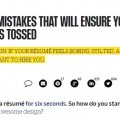
From LinkedIn: I call BS: Bad Advice and Recruiters
By Kurt Schmidt In Blog On March 24, 2015
I don’t have a lot of time for blogging but wrote this for LinkedIn recently and wanted to publish it here as well:
Lately there have been what seems like a lot of “articles” published on LinkedIn that are highly critical of recruiters and the recruiting industry. (In fact, a quick search of columns with the word “recruiter” in the title brought up over 55,000 results.) I don’t mind, I’m not that sensitive. However, what does bother me (somewhat) is all of the really bad advice on how to work with recruiters. Bad advice is easy to identify – it usually contains words like “always, never,” and “all.” Here’s some good advice: If you see any of those words in an advice column, stop reading, you’re wasting your time.
Examples… I’m a big believer in examples. For example, in a couple of her recent columns, Liz Ryan says that candidates should never reveal their current compensation or salary history to recruiters. Instead, candidates should only provide their “desired” compensation. This is wrong on so many levels. I’m sure Liz means well but she has never been a recruiter or even in HR for almost 20 years. I wouldn’t say that all of her advice is bad, or that Liz is not sincerely trying to help, but her most recent columns on how to deal with the question about compensation really miss the mark and way over simplify the candidate-recruiter relationship.
Here’s where she goes wrong: When I ask a candidate for their salary information it is because I am trying to complete a biographical sketch of the candidate for my client, the company. It’s not a negotiation and has no real bearing on what a final offer might be, should the candidate and I arrive at that stage of the process. It is simply that qualifications (value) and cost (compensation) are inherently related. In this scenario “desired compensation” is meaningless. Believe me, none of us are paid what we think we’re worth and that’s not how markets work anyways. Something (or someone) is only worth what someone else is willing to pay at any given time – which has nothing to do with “desired” worth.
Liz seems to think that by revealing compensation information to recruiters, candidates are weakening their negotiating positions. This assumption totally misunderstands the candidate – recruiter – company relationship. Let’s start with this, Liz suggests that there should be some parity in terms of who is revealing what to whom. Fair enough, candidates should not be the only ones providing compensation information. In fact, I would venture that a lot of recruiters are more than happy to reveal their compensation and, more importantly how it works. In case you’re reading this and you don’t know – and many people don’t – a lot of recruiters, myself included, are paid a percentage of the final compensation package negotiated on behalf of their candidates. That percentage typically ranges from 20% to 30% of the negotiated annual base salary, sometimes including bonuses, etc. Now, if you’re a candidate reading that, what does it mean? It means that most recruiters have a significant incentive to negotiate the highest possible salary for their candidates in order to increase their fees. This is a significant contrast from the supposed adversarial relationship that Liz suggests exists between candidates and recruiters whereby recruiters are doing their best to push candidates expectations downwards. In fact, it’s just the opposite.
So how does that work if recruiters are paid by the companies? Part of a recruiter’s job is to develop a balance between what is possible in terms of compensation from a client company and candidate expectations and desires. This means that if I have a job that has a potential salary of $100k, I don’t submit candidates who are earning a lot more than that unless they are okay with the limitations. How do I know they are earning more than that, I ask. If during a search, I compile enough data to know that my client company isn’t meeting market expectations in terms of providing an adequate compensation package, I tell them. How can I do that? By having candidates reveal their current compensation levels.
None of that is adversarial. None of it is negotiating or positioning or anything. It’s just good information management.
What most people don’t understand is that your job search is a process with milestones and transitions of power and decision making ability along the way. Both candidates and companies control how it works, how far it goes and whether the process continues or stops at any given point. In the beginning it appears that companies have all of the decision making power in terms of determining whether or not a process continues (obviously candidates can quit at any time and that too is a decision but most who are applying for jobs don’t withdraw themselves in the early going). Later in the process, if successful, candidates earn the right to make the final decision (by getting an offer).
Recruiters, on the other hand, make very few decisions. When I consider my own work, the only decisions I really make are whether or not to contact a certain candidate, then afterward, whether or not to submit them to my client company. After that, the company decides whether or not to interview them and the candidates decide whether or not to participate.
Most companies understand that in order to hire someone they need to improve upon that individual’s current situation. “Improvement” can mean job satisfaction, compensation, location, growth ability, quality of life, or other items that are important to any specific candidate. As a recruiter, it’s part of my job to understand a candidate’s motivation and interests in order to assist both parties. Compensation, like all of the other items, is a part of that and a necessary component to complete the package of information. Withholding that information leaves a hole and worse, an unanswered question – which can create resistance.
Candidates (and recruiters) should be smart enough to know that resistance is bad. Make a company hesitate before talking to you and there’s a good chance they never will.
So what is the right way to deal with the compensation question? And what is the impact of your answer?
The right way to answer the question about current compensation, whether asked by a recruiter, an HR staff member or the hiring manager is to tell them your current compensation and stop talking. Don’t justify it, don’t qualify it, don’t add disclaimers, and don’t say anything about “desired” compensation. If your interview process is following a typical pattern, the first time the compensation question will come up will be fairly early – before you’ve had a chance to demonstrate how much you can help the company. At that point, all you are is a number and a resume. It is up to you to get past this question to the point where you can start demonstrating value and filling out the picture of what you bring. We all know that the fastest way to stop an interview process is to answer this question incorrectly so again, the best answer is direct, specific, honest and short.
Giving your compensation information at the beginning of an interview process does not trap you into anything. If you get to the offer stage and the offer is unsatisfactory you can always say “no” or negotiate. The key though is to get to the offer stage where the transition of power has occurred and the company has concluded that they do indeed want to hire you. Once a company reveals their intent to make an offer, they are vulnerable, there is momentum and the last thing they want to do is start over or settle for second best. The time to talk about “desired” compensation is after you know an offer is imminent or has been made. Doing so at any time beforehand puts “price” before “product” and will increase the odds of failure. Very few people buy things based on price alone, without considering quality and performance. And don’t deceive yourself, as an employee, you are selling yourself and your capabilities as a product. Even Liz says to think of your career as a business. However what she fails to say is that almost nobody who wants to sell anything leads with price instead of benefits. People sell benefits, impact, quality, performance and results. Price comes later. Think about it. If you want to be truly successful in your job interview processes, focus on how you can help your potential employers and let them worry about how much they will have to pay you after you’ve convinced them that you’re the one.
Another thing that is mentioned frequently is that candidates have no power in the process and are at the whim of companies, i.e. that it is always a “buyer’s market.” Again, not true. You’re in control of a lot more than you think. You control who you talk to and for how long. You control the information you provide and when you provide it. You control your job search strategy. It is up to you to identify recruiters who make sense for you and companies that can benefit from your expertise.
Believe me, as a recruiter, I would love to place everyone that contacts me. If I could fit square pegs into round holes I would do it all day long and make a lot of money. However it doesn’t work like that. The work I do is specific, extremely detailed and precise. I work with candidates and companies to try to create situations that work for everyone long term. This is only successful if we all share real, truthful information and work together to build a solution. Companies are not always cheap and short-sighted. Many are more than happy to pay to get people who can really help them. Recruiters are not always sales jerks who just push product to meet quotas. Many (of us) are actual consultants who work closely with all parties to bring out the best in everyone.
Sure, you can try it Liz’s way. Tell the next handful of recruiters, HR people or hiring managers that you don’t think your current compensation is relevant to the conversation and that they should only consider your desired compensation and see how far you get. Just explaining all of that means talking about it too much, too soon and will definitely create resistance.
For my part, when candidates won’t reveal their current compensation, even after I’ve explained why I need it and revealed my own compensation, I don’t work with them. I won’t risk my reputation or the relationship with my clients by doing inadequate work or providing incomplete information. The fact is, sunshine, you’re just not that special and neither am I. If you don’t want to abide by natural market rules it’s easy enough to find someone else who will. The same goes for me. If my clients are dissatisfied with my work, they will go elsewhere. Call me a “dinosaur” if you want but I’m not going to go broke for you.
Bottom line: It pays to have a strategy and give some thought to the relationships, timing and priorities involved. If you want to try to make your own rules, go for it. There’s nothing wrong with that. However your job search results might be better if you spend your time mastering the process instead of playing games.
Oh, and if you need help, I wrote a book too. You won’t be surprised to find that it is not full of feel good self affirmations and shared victim-hood in a world of giant soul-less bureaucracies. No, my book contains real world process guidance and expertise culled from almost 20 years as an executive recruiter working (successfully) for some of the largest and most well-known companies in the world. I don’t care if you buy it or not, it’s your career. Keep on reading the fluff if you want.
*****************
Kurt Schmidt is the author of “Modern Job Search” and the President and Owner of Capto Systems, an executive search firm focused on supply chain and strategic sourcing jobs in manufacturing and energy. He’s also an aspiring photographer and traveler. If you’re really looking for a job, you need this book!
Header Photo (recycled): I met that guy while hiking on the E4 European Long Distance Path in Tarifa, Spain – He didn’t appear to want his photo taken.








